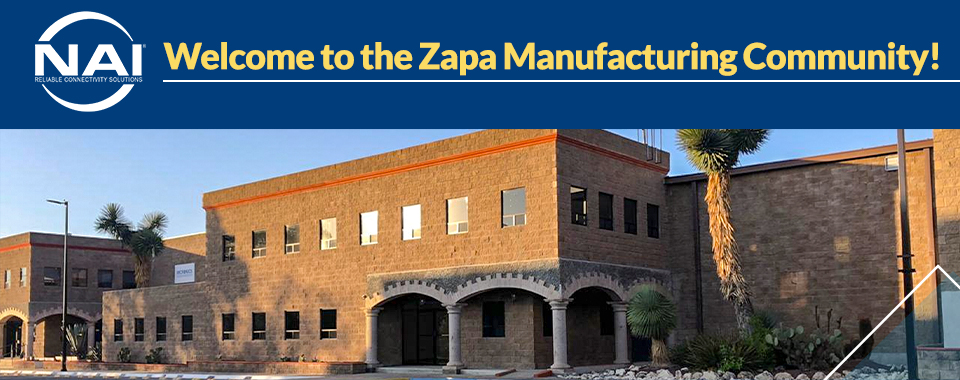Through its extensive free trade agreements and decades of work in encouraging foreign direct investment in its economy, Mexico is truly a global country. However, manufacturers looking to launch an operation in Mexico and build networks with local suppliers will find that an understanding of the local business culture can be a powerful asset. Some strategies involve getting to know local ways of communicating and establishing local business relationships.
These relationships often give rise to a strong sense of loyalty to existing suppliers. Suppliers and other business leaders looking to gain a foothold in the local market will find they are best served by meeting local business culture expectations.
Manufacturing in Mexico
Mexico's manufacturing hubs have become pivotal to the global supply chain, offering a strategic advantage to companies looking to offshore their operations. These hubs, located in regions such as Bajio, Tijuana, Monterrey, and Querétaro, specialize in various sectors, including automotive, aerospace, electronics, and medical devices, making Mexico a diverse and competitive manufacturing destination.
These hubs not only contribute significantly to Mexico's economy but also provide foreign businesses with cost-effective, high-quality manufacturing solutions, enhanced by Mexico's extensive network of free trade agreements and a supportive regulatory environment. The strategic development of these manufacturing hubs underscores Mexico's commitment to maintaining its position as a leading destination for international manufacturing and offshoring activities.
Because of this, knowing how to navigate business culture in Mexico is key for any industry interested in offshoring. Here are some tips on how to do so:
1. Make it personal
In Mexico, contracts are often seen as the beginning of a relationship that can enable business progress. Building these relationships may take place through the expected small talk that takes place in many business meetings and through business meals. These relationships are important because trust plays a critical role in establishing these business relationships.
Strengthening these business relationships might also include socializing with associates and their families. Many Mexican business professionals invite colleagues and their families to their homes over the weekend as an opportunity to build social bonds.
Meeting and asking about families is important, as family in Mexico always takes priority over work and other aspects of life. This has an impact on Mexican-U.S. business communication because family is a part of self-definition in Mexico. Consider that most people in the United States define their sense of self by what they do for a living. Most Mexicans might define themselves as belonging to a particular family. This is one reason that you’ll find most Mexican employees and colleagues take long holidays, as a time to visit with loved ones.
2. Check your boundaries
Getting to know your colleagues’ and employees’ family life isn’t the only difference in boundaries. Expect a different understanding of personal space in Mexico compared to what you find in the United States. While there are regional differences in communication, overall personal space is slightly closer than in the U.S., where two people standing face-to-face may be expected to stay roughly arm’s length apart.
For a first-time greeting, a handshake is typical. However, once that relationship is established in Mexico, a greeting may include a pat on the back or a kiss on the cheek. This close contact is a sign of appreciation and respect, and withdrawing from this touch could be considered insulting.
3. Track tone and gesture
Experts agree that as much as 90% of communication is nonverbal, and gesture and tone can play a big impact in establishing business relationships. Mexico is often referred to as a “high context culture,” meaning there is less reliance on formal communication and more on implied content conveyed through understanding built on long-term relationships and face-to-face interaction. In other words, there is as much importance put on how a message is said as on the message itself. Recognizing this, it becomes easier to recognize when a “yes” may actually mean no, for example.
Take time to think about what your body language is saying. Shoving your hands in your pockets may be impolite, while placing your hands on your hips seem aggressive.
4. Dress to impress
Presenting yourself in a professional, polished way is important in Mexico, which is why a suit is the norm for business settings. When doing business in Mexico, it is better to be overdressed than underdressed. The exception might be for meetings in a particularly hot region in smaller cities. However, even in informal business meetings, dress might tend toward calm, conservative colors. Jeans are rare.
One element to keep handy, no matter what your outfit, is a business card. Business cards are still a must in Mexico, so it’s a good idea to keep some handy. It is advisable to have one side in Spanish and to present that side facing up during a meeting. Cards should include your cell number as well as email.
5. Follow local time
It is important to be respectful of local expectations around time. This begins with any meetings you may schedule. Confirm the time prior to your meeting to ensure everyone remains on the same page. While it is expected that you show up on time to meetings, a wait may be in order. In addition to a more relaxed attitude around time in general, traffic disruptions are common in large cities and can trigger delays.
Understanding timing is important once meetings begin as well. Serious negotiations may not begin until a second or later meeting. If meeting for a meal, business discussions may not take place until the last five minutes.
One of the benefits of having an operation in Mexico often is the closeness of time zones to home operations. A typical Mexican business day may start at 9:00 am and end at 7:00 pm, much like in the United States. However, it is normal for your colleagues in Mexico to take a more leisurely lunch, usually between 2:00 to 4:00 pm, so it may be best to time your call accordingly.
6. Be informed
Your colleagues and potential partners in Mexico appreciate it when you take an interest in the country. Demonstrating knowledge of culture, history, art, and the like is one more way to demonstrate that you are both well informed and well prepared to do business in Mexico.
Of course, the best way to be prepared for business in Mexico is to work with an expert advisory services firm. By working with a partner like Tetakawi, you gain a bridge to Mexico's business expectations. Contact us today to start planning your expansion into Mexico.
Subscribe
Sign up and stay informed with tips, updates, and best practices for manufacturing in Mexico.





